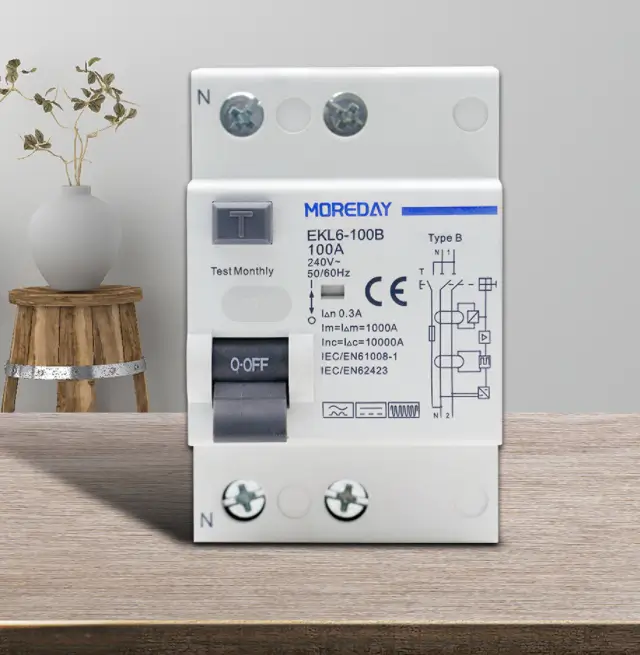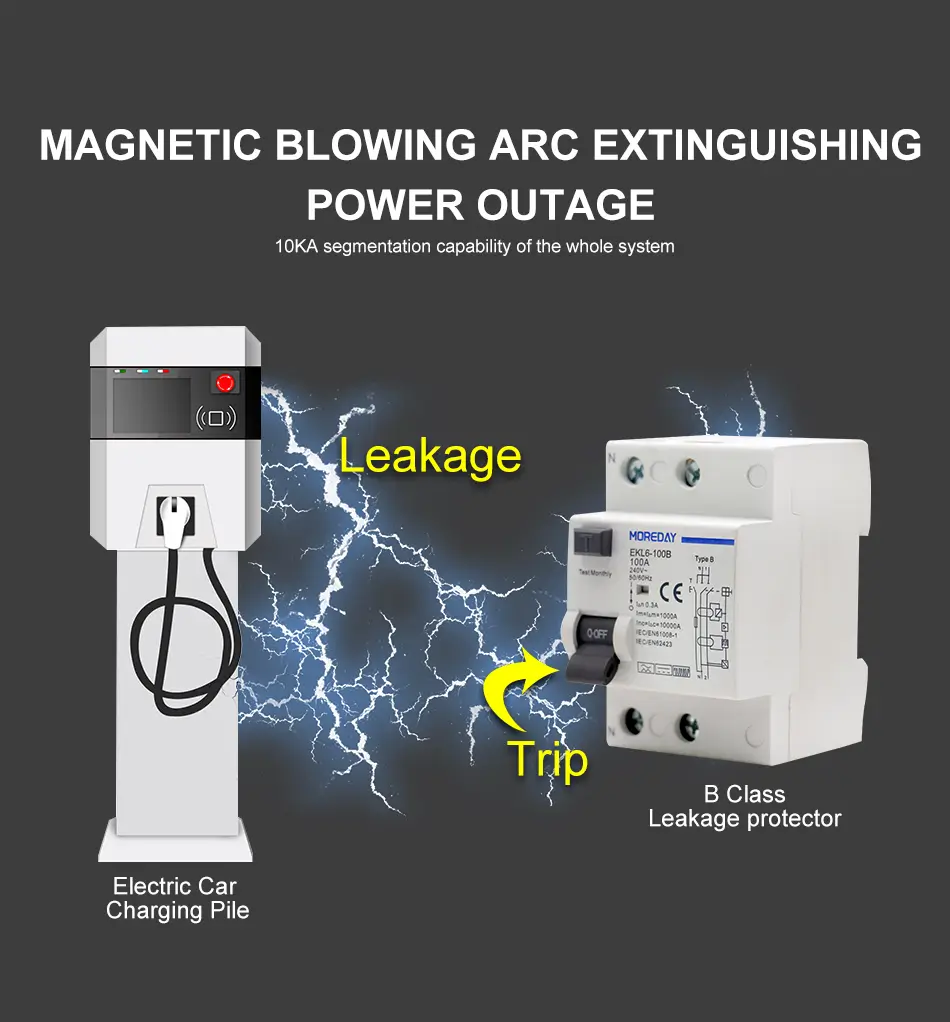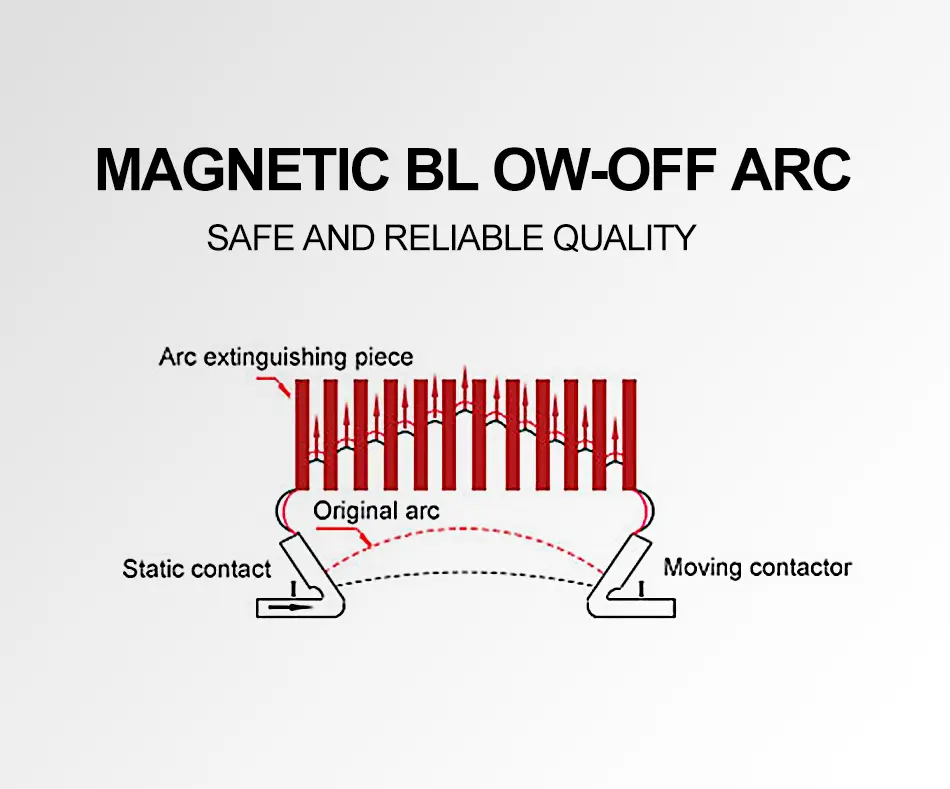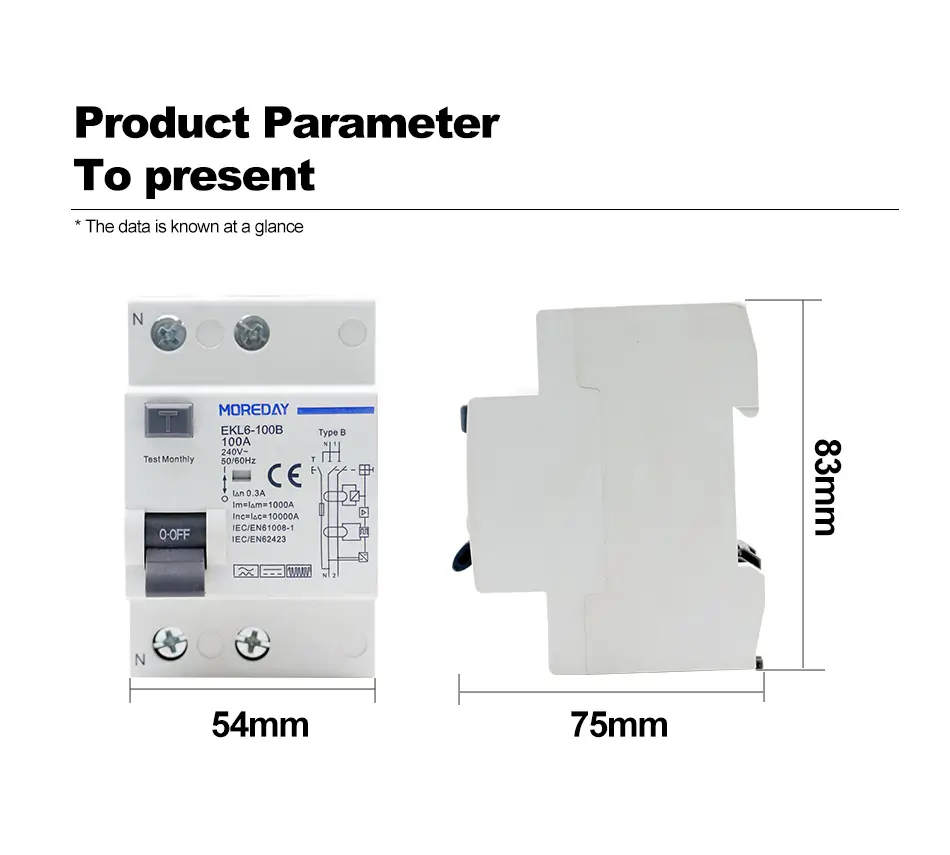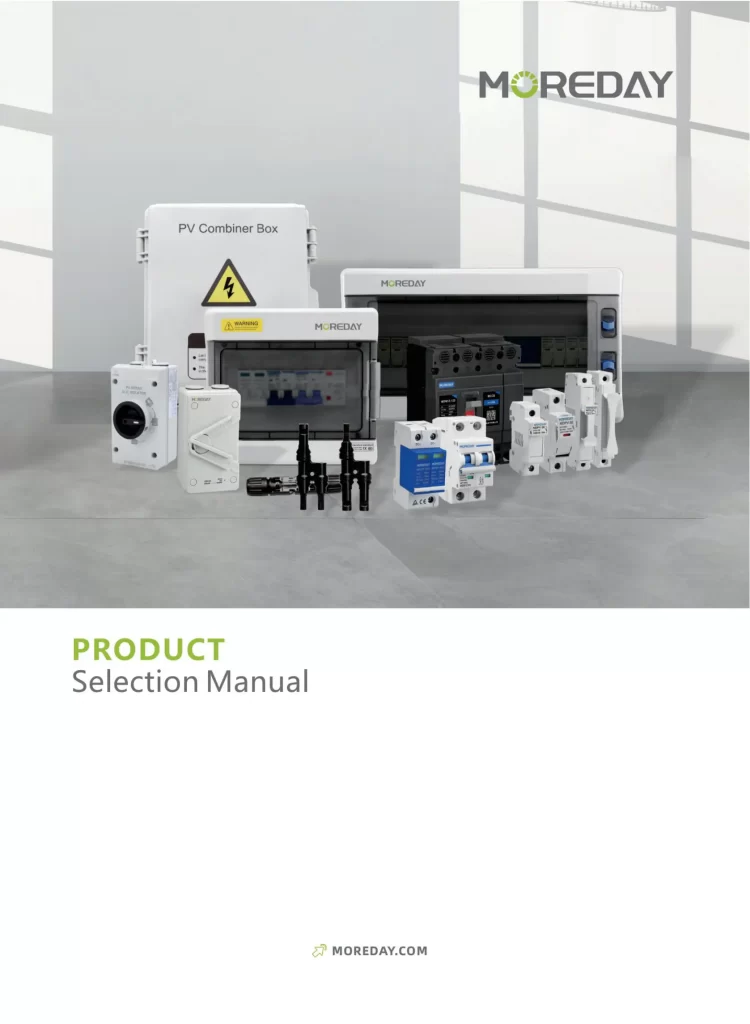Previous
Next
TYPE B RCCB Residual Current Circuit Breaker EKL6-100B
MOREDAY EKL6-100B Type B RCCB breaker for EV
Features:
- Type B can use for EV charger
- According to EN /IEC 61008-1
- Leakage protection
- Simple installation, long-term protection
- OEM/ODM
- RoHS material



